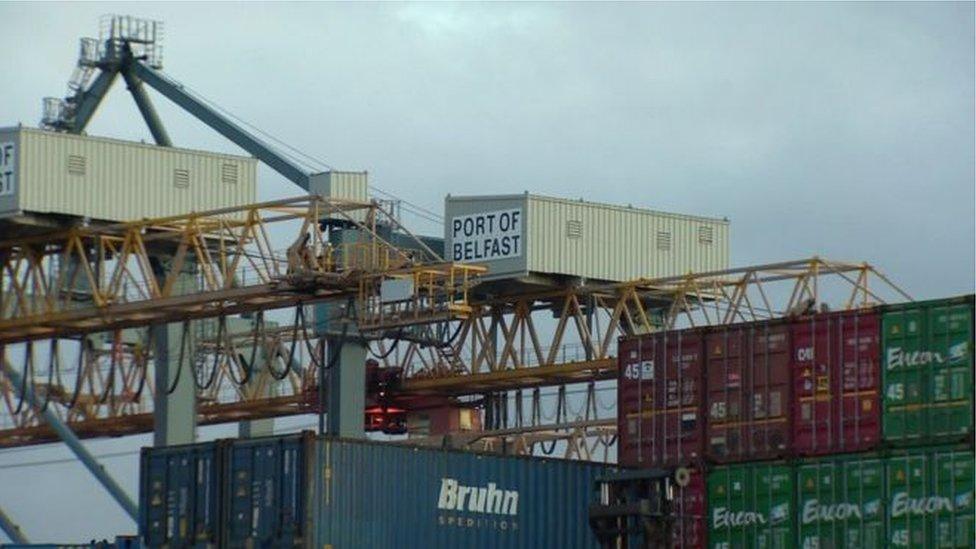Coronavirus: Belfast Harbour's trade hit by pandemic
- Published
- comments

Belfast Harbour currently has £115m of projects underway, supporting 4,000 jobs
Trade at Northern Ireland's largest port, Belfast, fell 25% at the peak of the coronavirus pandemic but has already started to recover.
It comes as Belfast Harbour published its results for 2019 with turnover down 4% at £65.9m.
This drop was caused by an offshore wind farm contract ending last year and the continuing decline in coal use.
However, it was partially offset by growth in the harbour's real estate activity
A total of 130 cruise ships were due to arrive in Belfast this year - the cruise industry is one of the hardest hit by the pandemic.
It is now believed that none of them will arrive as planned.
'Remarkably resilient'
Belfast Harbour is a trust port which means it reinvests its income and currently has £115m of projects under way, supporting 4,000 jobs
Some plans, like expanding the film studios at North Foreshore, will speed up because of the pandemic.
Others, such as the £20m cruise ship terminal, will be slowed down.
"The full implications of the pandemic on trade and our local economy are significant and still unfolding," said Belfast Harbour's Chairman, David Dobbin.
"So far trade through Belfast Port has proved remarkably resilient.
"Early figures for the March to May period show trade volumes down 20-25% on normal but in recent weeks throughput is running around 10% down on last year.
"The worst impacts have been in our cruise, tourist and leisure activities which have all but ceased during the crisis.
"The scale of the challenge to get the economy back to pre-crisis levels and to recover our tourist and leisure trade is immense," he added.
Joe O'Neill, chief Eeecutive of Belfast Harbour said: "While the pandemic may influence some of our short and medium-term priorities we believe that the long-term goals of our strategy largely remain valid."
- Published17 February 2020
